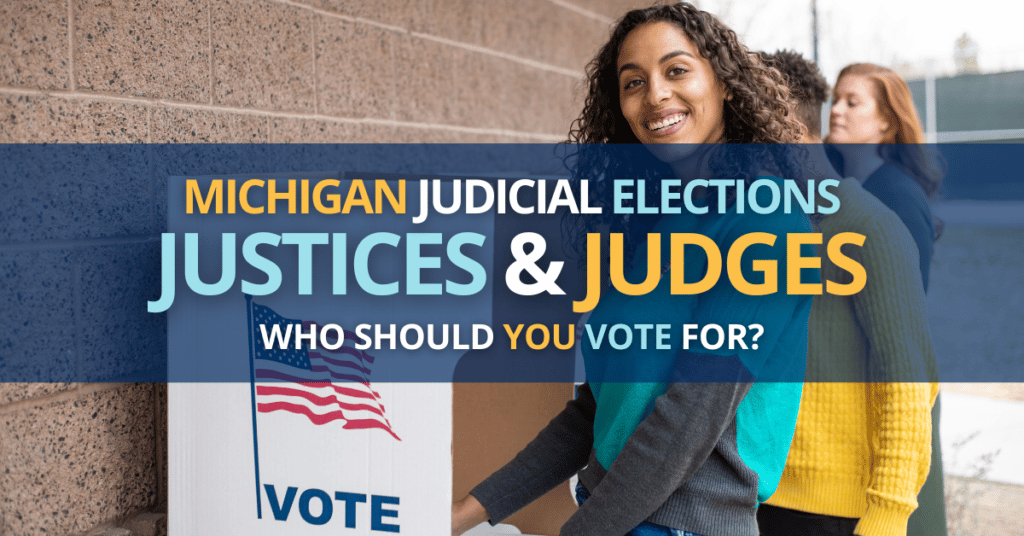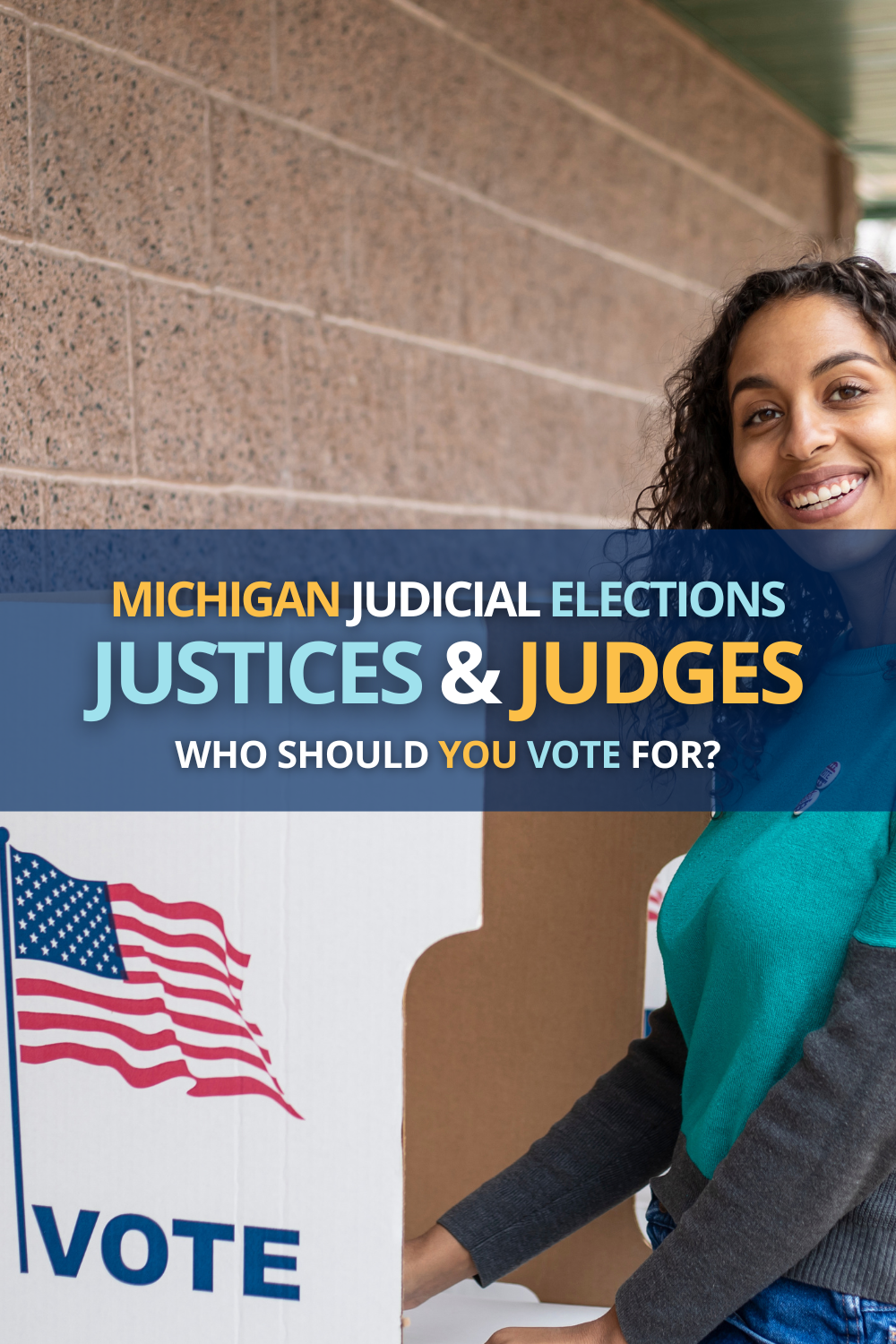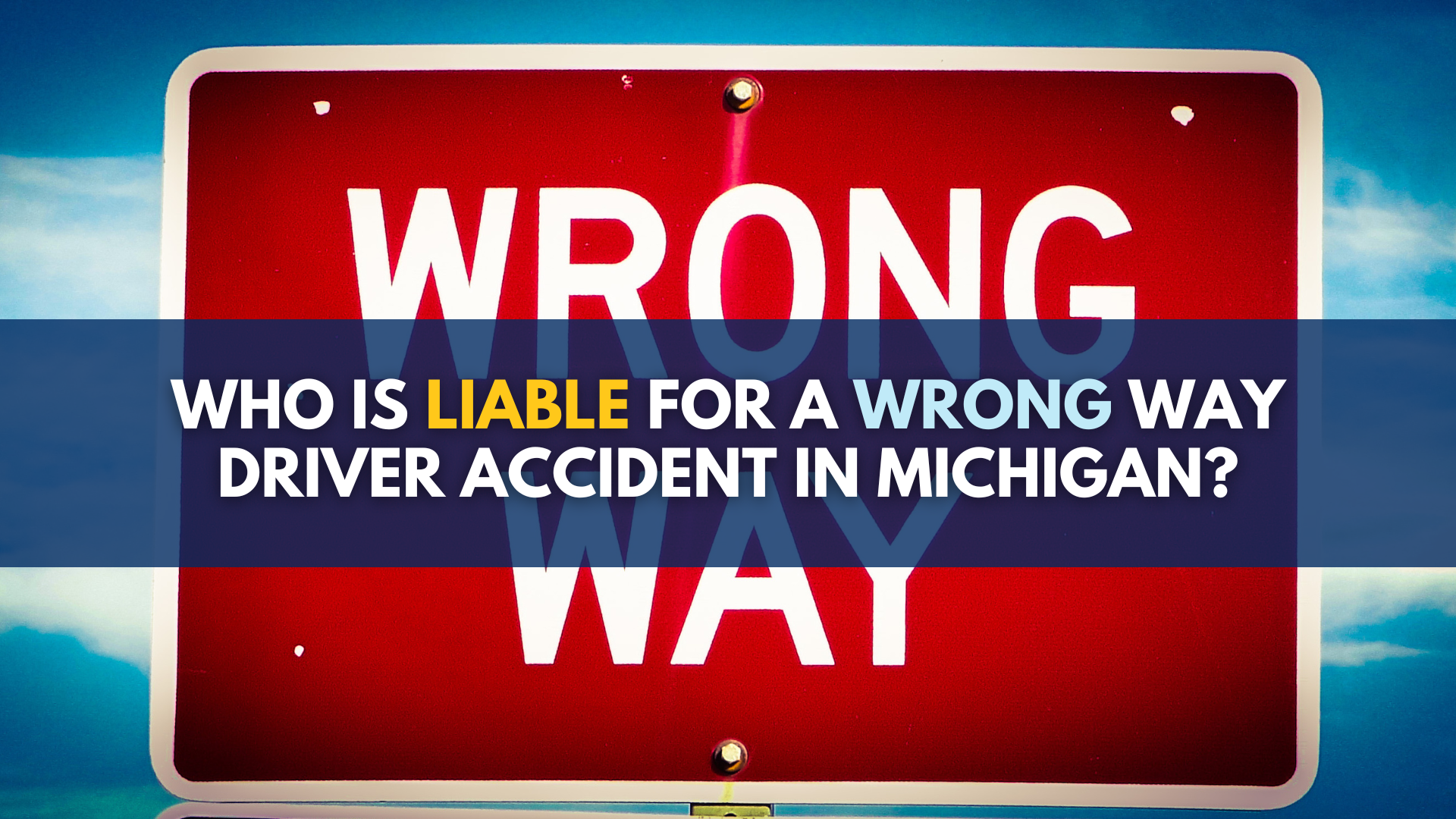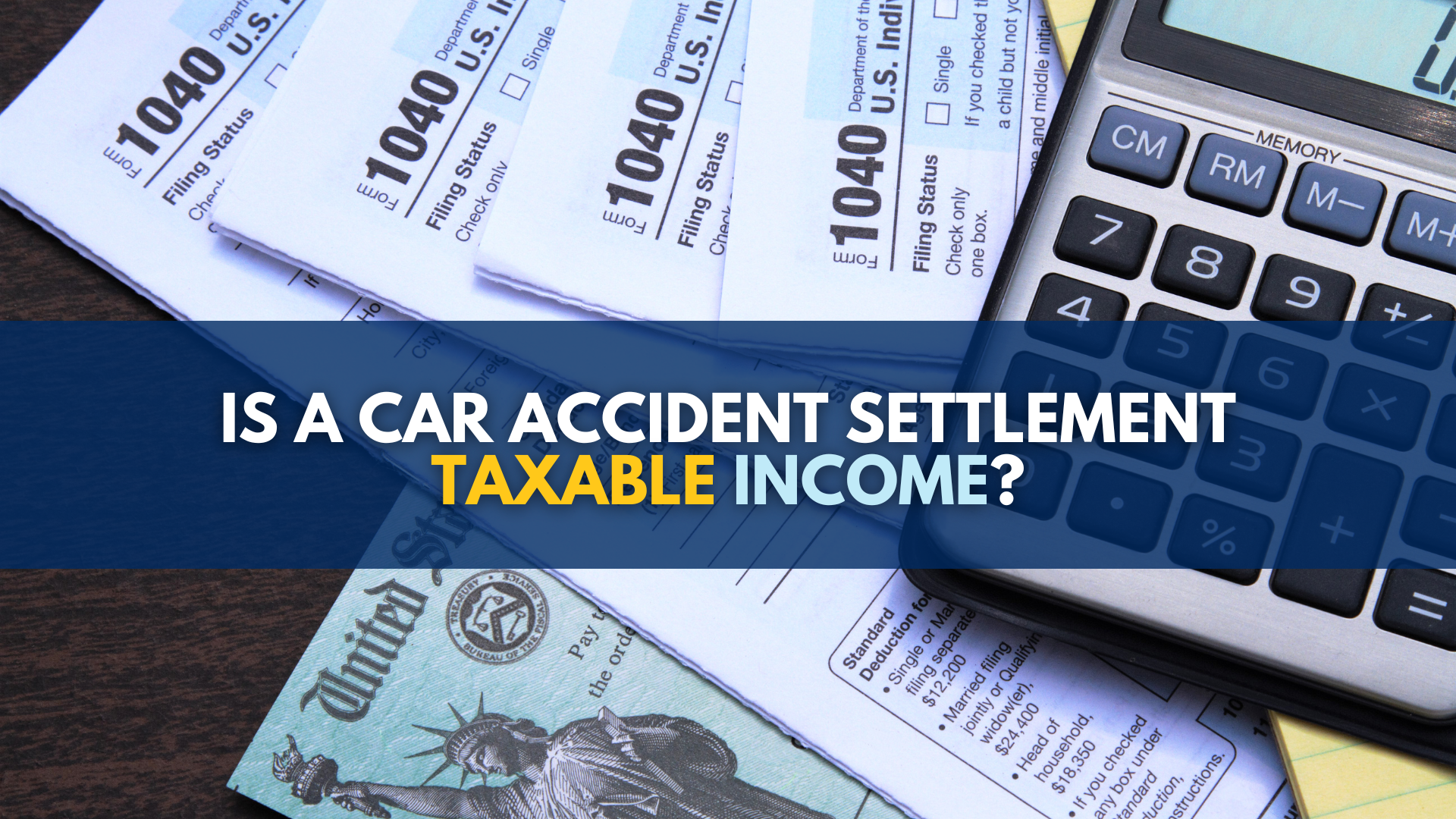
The Michigan judicial elections for the Michigan Supreme Court and the Michigan Court of Appeals are fast-approaching. In less than a week, we will all be at the polls or filling out our absentee ballots to select the justices and judges who will serve on Michigan’s highest court and appellate court.
Even though most of the media coverage focuses on the gubernatorial race and the competition for state attorney general, the races for the Michigan Supreme Court and the Michigan Court of Appeals are very important and deserve careful attention.
The Michigan Supreme Court, which is the highest court in the state and its rulings interpret and determine what the law is for everyone in Michigan, has only seven justices. Two of those “justice” positions are in contention in the November 8th election.
Similarly, the Michigan Court of Appeals, which provides appellate review to trial court and other rulings across the state and whose published opinions have binding precedential effect on the Court of Appeals itself as well as all of the state’s lower courts, is also going to be an issue on the November ballot.
My hope is that this blog post with its recommendations for candidates for both the Michigan Supreme Court and the Michigan Court of Appeals will help you with the important, far-reaching decisions you must make in the upcoming Michigan judicial elections.
In recent years, judicial decisions in America and in Michigan seem very much to be going in the direction of protecting big insurance companies and big corporations and taking people’s rights away.
This year’s Michigan judicial elections gives us the opportunity to change course by electing justices and judges who care about protecting people.
I will be personally voting for the candidates below and they are the ones that I am recommending to my family and friends.
Significantly, they are also the candidates who have been endorsed by the Michigan Association for Justice for the 2022 Michigan judicial elections. The MAJ is Michigan’s leading association of consumer protection, civil rights and personal injury lawyers and judges.
Michigan Judicial Elections in 2022 for the Michigan Supreme Court
The Michigan Supreme Court candidates whom I am recommending that you vote for and who have been endorsed by the Michigan Association for Justice for the November 2022 Michigan judicial elections are current Justice Richard Bernstein and current State Representative Kyra Harris Bolden.
Justice Richard Bernstein
Justice Bernstein was voted onto the Michigan Supreme Court in November 2014 and began his 8-year term in January 2015. He became the first blind justice to serve on Michigan’s highest court. During his years in private practice before being elected to the Michigan Supreme Court, Justice Bernstein was known as a tireless advocate for the rights of disabled persons. While representing the Paralyzed Veterans of America, he partnered with the U.S. Department of Justice in a case that helped establish guidelines for stadiums and commercial facilities across the country to ensure safe access for disabled individuals. Additionally, then-attorney Bernstein secured a landmark settlement that set the standard for when airlines and airports must ensure accessibility for disabled fliers under the Americans with Disabilities Act of 1990.
Kyra Harris Bolden
Rep. Bolden is currently serving her second term representing Michigan’s 35th House District. After receiving her Juris Doctorate, Bolden became a civil litigation attorney. She is also an active member of her community, serving as a member of the National Congress of Black Women-Oakland County, the Women Lawyers Association of Michigan, Alpha Kappa Alpha Sorority, Inc. and as a commissioner of the Total Living Commission for the city of Southfield.
Michigan Judicial Elections in 2022 for the Michigan Court of Appeals
The Michigan Court of Appeals candidate whom I am recommending that you vote for and who has been endorsed by the Michigan Association for Justice for the November 2022 Michigan judicial elections is Judge Sima Patel, who is currently a judge on the Michigan Court of Appeals.
Judge Sima Patel – Candidate for 2nd District
Before joining the Michigan Court of Appeals, Judge Patel had been an appellate attorney in private practice for 11 years where she represented clients in complex litigation cases before the Michigan Supreme Court, Michigan Court of Appeals, and the Federal 6th Circuit Court of Appeals. In 2020, she won the WMU Thomas M. Cooley Law Review Distinguished Brief Award for writing one of the “most scholarly” appellate briefs filed in the Michigan Supreme Court. At the beginning of her legal career, Judge Patel served as a law clerk for six years to two Michigan Supreme Court justices. In 2021, Michigan Lawyers Weekly honored Judge Patel as one of its “Leaders in the Law.” Judge Patel is also a contributing author for the Institute for Continuing Legal Education’s (ICLE) publication entitled, “Torts: Michigan Law and Practice.”
Judge Patel is running to be re-elected to continue serving on the Michigan Court of Appeals 2nd District, whose judges are elected or appointed from the counties of Genesee, Macomb, and Oakland.
We hope this helps you
I hope this blog helps you make the best choice voting for the justices and judges among the Michigan Supreme Court and Michigan Court of Appels candidates in the upcoming November 2022 Michigan judicial elections or on absentee ballots that are needed to maintain a fair and well-functioning justice system.
Remember to finish your ballot!
Voting straight party ticket – either Democrat or Republican – DOES NOT include a vote for the candidates for the Michigan Supreme Court and Michigan Court of Appeals because these justices and judges are considered non-partisan.
In order to ensure you vote counts for the 2022 Michigan judicial elections you must complete your ballot and vote for the Michigan Supreme Court and the Michigan Court of Appeals as well.
Remember your vote matters.
Paid for with regulated funds by the Michigan Auto Law – Auto Accident Attorneys Committee, 30101 Northwestern Highway, Farmington Hills, Michigan 48334. Not authorized by any candidate.



